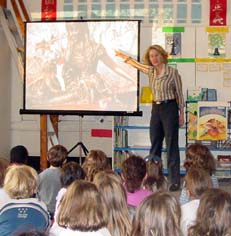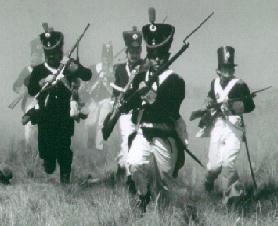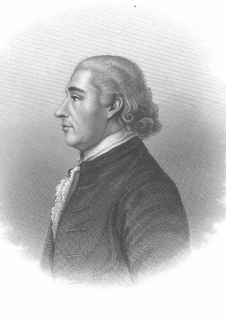What People Believe
 "Belief" is an interesting phenomenon in the human paradigm. People may not easily accept new information when they are older, but tend to believe what they are told at a young age, and will fiercely defend it later despite much evidence to the contrary.
"Belief" is an interesting phenomenon in the human paradigm. People may not easily accept new information when they are older, but tend to believe what they are told at a young age, and will fiercely defend it later despite much evidence to the contrary.
A devoutly religious man will need as much concrete, tangible proof as anyone before he will believe that eating frozen yogurt will make him invisible, but he needs no proof to believe anything that is supernatural, mysterious, illogical or completely impossible - as long as it is written in the bible. Because he was told when he was young that the Bible is the word of God - the ultimate authority.
So his logic circuits are not broken, they work in every other aspect of his life and in everything else he comes across. It is only in the matters of the things that are told in the Bible that he must accept on faith where every other tool of analysis says they cannot be true.
But this is not only a phenomenon of religious belief. Our understanding of history is not dissimilar. There is a mechanism of learning at work here. It is connected to the concept of "authority", but also, I suggest, to the effects of time and layered learning.
In that first case, it was the Bible. In this case, we're talking about history books. But in both cases, the issue is that when we learn these things at an early enough time in our lives, we just absorb it, we trust it implicitly because it comes from a trusted source, and it then becomes integral to our world view.  If we were to see something from another trusted source that contradicted it within a few minutes, then we can easily switch to the new belief. If we saw something a few months later, we might be cautious at first, but without too much trouble, we switch over to accepting the new knowledge. Even if it comes a couple of years later, we might switch over from the old knowledge to the new, once we got a few clarifications.
If we were to see something from another trusted source that contradicted it within a few minutes, then we can easily switch to the new belief. If we saw something a few months later, we might be cautious at first, but without too much trouble, we switch over to accepting the new knowledge. Even if it comes a couple of years later, we might switch over from the old knowledge to the new, once we got a few clarifications.
But once we are older, and we've "known" something for many years, we have learned too many other things that have been layered on top of that knowledge, and to undo that underlying knowledge, would mean dismantling a sizeable portion of our world view, and most people are too mentally lazy, or too frightened to do that.
It's much easier to simply be critical and skeptical, and reject any new information that contradicts that which we already think we "know". It works that way with religious faiths AND with our understanding of history AND with our understanding of how the world works in general. It is a fundamental component of prejudice and bias, which is common everywhere.
And thus is human nature. Thus is the source of stubborn ignorance.
In combination with this problem of not being able to "un-learn" something we have become comfortable with since childhood, is the problem that the people who told us what we learned then may have been wrong, or may have been driven by an official agenda, or a self-serving agenda, or it may simply be a perspective that THEY had been carrying since THEIR childhood, that they are now further propagating to us. We get the version of history that THEY teach us, and, once it settles in, that becomes THE version of history. At least as far as we are concerned.
It takes an extremely agile and open mind to be able to re-think, re-evaluate, and re-learn new versions of old accepted "facts" or accepted perspectives.
I want to point out a few examples of some things which most Americans "think" they know but are probably wrong, yet it may seem difficult or impossible to accept a new truth even when it is told and proven.
There was an article on NPR radio this week about a book just released that shows how our versions of history have changed over the past 100 years. Apparently, the government did not want young men to be second-guessing their government's decisions on why they should go to war, so the reasons that wars were started were often deliberately obfuscated in the textbooks that schoolkids read. They simply made it up to suit their purposes, but the kids just believed everything they were told, and for them and their decendents, that became the unalterable "TRUTH". But the "TRUTH" changed over time, depending upon how much the gorvernment was willing to admit. As an example, the author cited the war between the US and Mexico. In a history textbook written in 1849 just a few years after the war ended, it was said that the war was started by the Mexicans. Then a few decades later, it was described as something both sides started. Then a few more decades passed, and then it was described as having been started by a pre-emptive strike by the Americans to fend off a potential strike by the Mexicans. Then, in the 1990's it was described as more a land-grab and resource acquisition of the US government to take something away from Mexico. These are all history textbooks that people studied and took for truth at those given times. The facts or history did not change. But the interpretations, and perspectives that are presented about them changed completely until the exact opposite perspective was accepted as true.
As an example, the author cited the war between the US and Mexico. In a history textbook written in 1849 just a few years after the war ended, it was said that the war was started by the Mexicans. Then a few decades later, it was described as something both sides started. Then a few more decades passed, and then it was described as having been started by a pre-emptive strike by the Americans to fend off a potential strike by the Mexicans. Then, in the 1990's it was described as more a land-grab and resource acquisition of the US government to take something away from Mexico. These are all history textbooks that people studied and took for truth at those given times. The facts or history did not change. But the interpretations, and perspectives that are presented about them changed completely until the exact opposite perspective was accepted as true.
It's fascinating how we believe whatever we are taught at a young age in school - and yet that is twisted by whatever the politics are at the time. It will be interesting to see what future historians tell about the causes of the current war in Iraq.
Sometimes the truth is simply glossed over when teaching children in school, because either the details are too complicated, or because the details don't support the overall message they are trying to convey (very much like propaganda) Let's look at some classic wrong information taught to us in school.
Who Discovered America?
Who was it from Europe that originally discovered America? Most of us were taught that Christopher Columbus discovered America. That is why we have Columbus Day as a holiday in October.
But that is, of course, quite wrong. Certainly, Columbus did come here as an envoy of Queen Isabella of Spain in 1492, but it was almost 1500 years earlier that Leif Erikson first discovered America.
Originally from Norway, Lief's grandfather had been banished for killing a man, and so went to live in Iceland with his Son, Erik The Red. Lief was born in Iceland, but when he was 12 years old, his father Erik had been banished from Iceland - also for killing a man, and so travelled west toward a land he had heard legends of sightings for. He went there and established a permanent settlement there which grew to more than 3,000 norsemen over the next 400 years. Because there were some green grasses in the summer months, he called it Greenland to encourage settlers. Lief had grown up with a German slave of his father's in Iceland and learned multiple languages, all about plants, and a love of the sea. When he was old enough, he went to visit King Olaf in Norway where he was converted to Christianity by the King, and decided to spread the word of that belief to Iceland, and Greenland where he then went to live with his father.
There was another Norwegian named Bjarni, a merchant from Erik's settlement, who once sighted the Canadian coastline when he had gone far off-track because he lost sight of the North Star in clouds while travelling from Iceland to Greenland. He spoke of seeing a coastline of rolling hills covered in trees, but he did not stop to investigate and instead turned back north to Greenland once he had his bearings.
So, in the year 1000AD, looking for a warmer place, following the story of Bjarni of new lands westward, and borrowing a boat from him, Leif set sail west and southward. He first found Baffin Island, but didn't much like the flat rocks and ice glaciers. He called that Helluland. He took to the sea again, travelled down the coast of Labrador, to Newfoundland and established a settlement there now called L'anse Aux Meadow, just north of present day St. John's on what is now Canada's east coast.
Because of prevailing winds and calm seas in the summer, this was actually only a 4 1/2 day trip. A Viking could do that with their eyes closed. They were used to much longer and more rigorous trips across the north Atlantic from Norway to Iceland and to Greenland. They stayed over the winter until the next spring, then left behind their settlement and lots of rune stones with Norwegian writings on them which were discovered later. Leif called America "Vinland" because he found grape vines there and made wine from it. He returned to Greenland to much acclaim from his father who had broken his ankle and so couldn't join him on the trip. Lief brought back the wine from this southern land to the west, and it and the trip was famous in their community for a long time. Lief went back again for another trip 2 years later.
The original descriptions of the voyages were written by Lars Almvig who accompanied Lief Erikson on the two journeys there to Canada. He created many recountings describing their journeys, the most literate of which was "Val Sturma Vinland," which provided details such as sailing directions, distances and landmarks.
Since the Norwegians did regularly travel back and forth from Greenland, Iceland and Norway and other parts of Europe, these stories made their way back to the European mainland, and Adam of Bremen in Germany translated them and captured them in detail. Those original documents are still on display in Bremen, Germany today.
In the early 12th century, an English cleric named Vincent Beauvois put the stories together with a map now called the "Vinland Map" and created a manuscript called "Spectrum Historial"
In 1250, Pope innocent IV sent a man named Carpini to meet with the Tartars. They recounted in detail Leif Eriksons; journeys and so Carpini's writings on those adventures were brought back and also included in the manuscript "Spectrum Historical" by literary monks.
That manuscript was in Europe showing North America on a detailed map many years before Christopher Columbus sailed to discover the island of Hispaniola (Now Haiti and the Dominican Republic) and that documented the discovery of North America more than 1500 years before, and even named Leif Erikson as the discoverer.
The map in that manuscript is known as "The Vinland Map". That map, possibly the first map showing the New World, is currently housed in Yale University's Beinecke Rare Book and Manuscript Library. Below is a picture of that map:
Who Was The First President?
Here is another question: Who was the first President of the United States? We are taught it was George Washington. But that turns out to be wrong too. Samuel Huntington was actually the first president of the United States. He was the president for the first one-year term. He later became the Governor of Connecticut. Look it up. Here is one site in the encyclopedia: http://en.wikipedia.org/wiki/Samuel_Huntington_(statesman)
But there are many places to look it up.  In fact, before he became the first president of the United States, he was the President of the Continental House of Congress and it was he who was largely responsible for combining the states into a country. He pulled them together and solved the problem with Maryland's claim on the Ohio Country, etc. to help form the United States of America, and it was he who built support for the Declaration of Independence and signed it as President of the US, and remained in that role for one year.
In fact, before he became the first president of the United States, he was the President of the Continental House of Congress and it was he who was largely responsible for combining the states into a country. He pulled them together and solved the problem with Maryland's claim on the Ohio Country, etc. to help form the United States of America, and it was he who built support for the Declaration of Independence and signed it as President of the US, and remained in that role for one year.
The War of 1812
When I was in elementary school in Canada, I learned about the War of 1812. The only time when Canada and the US were at war with each other. In that War, there were a number of battles from Erie to New Orleans. Canada had 5,004 soldiers plus a few militia, the US had 35,000 troops. But they were poorly disciplined, and did not want to fight outside their home states and so performed poorly in those situations. Canada won the war when it burned all the government buildings in Washington D.C.. The British comanders strictly enforced the rule that private residences were not to be touched or torched and they weren't. Only government buildings - since it was a war between governments. And that ended the war and they went back home. John Armstrong was the US Secretary of War and he was fired because of that defeat, and his successor never got a chance to retaliate because by that time the war had finished. So, clearly, from what I was told, Canada had won.
But when I came to the US, I mentioned this in conversation and discovered that most Americans were not taught the same story. First, they were taught it was the British, not the Canadians.
I have to concede that point actually because although it was the soldiers from the population in Upper and Lower Canada, they were technically still colonies of England at that time. Canada was not created as a separate country until later in 1867. Also, I have to now accept that I have learned that a good deal of the war was a naval conflict where the British Royal Navy was blockading the American Ports, and the American Navy was hunting down and sinking British ships (at first - the British them committed themselves to it and trounced the American Navy after the first few months)
The naval battle aspect of the war of 1812 was left out of, or glossed over by, my own education in Canada. We heard much more about the soldiers on land, and the attacks of certain towns across the Canada/US border. We even went on school field trips to see the restored forts and barracks, etc. commemorating the battles of that war. It's an important piece of formative history in Canada's past.
But yet when I came here to the US as an adult, when the subject came up in conversation here, I found that my American friends were mostly not told very much at all about that war in school. It is largely a forgotten war here. Or the few that had heard of it, dimly remember being taught that England attacked in 1812, but it ended in a stalemate or something, and there was nothing in more detail than that.
Clearly, the education system in each country focused more or less on the war and it's details based upon whose purposes were being served.
I think a similar process is in place in Russia when they choose not to tell their school children that tiny Finland beat them in every war they ever had with them.
History is very selective, I find. It is highly subjective and dependent upon the perspectives of those who chronicle it.
In Nazi Germany, one of the things they did was to go around to all the schools and rewrite new textbooks with a new history that glorified Nazis and made it seem as if their urge to take over the world was their clear manifest destiny - they were on a mission from God!
Anyone who read the Dune series of books by Frank Herbert might remember how the Bene Gesserit had taken the trouble of planting a story that became the seed of a legend within the Fremen culture on Arrakis, so that generations later, when they had created the genetic heir they were planning on, there would be an acceptance of him. He would already be a part of their religion, their culture, their racial memory.
It would seem like a prophecy, but it was really just long-term planning ahead.
Time gives a prediction extra credibility. It grows into a legend. It takes on super-normal properties.


1 Comments:
That is so true. . . In India, the education system and maps always depict the whole of Kashmir as India when in fact, more than half is occupied by Pakistan and China.
Post a Comment
<< Home